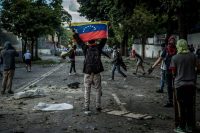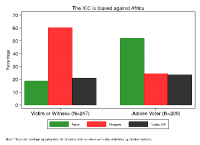The ICC’s conflict with the Trump administration shows why the court must change
Over the past month, the Trump administration has ratcheted up tension with the world’s leading instrument for prosecuting war crimes and crimes against humanity. On March 15, Secretary of State Mike Pompeo announced visa restrictions for International Criminal Court officials involved in any investigation of U.S. citizens. Last week, the ICC prosecutor, Fatou Bensouda, confirmed that her visa to enter the United States has been revoked.
The administration may be tempted to argue that its toughness produced immediate results. On Friday, in a surprise development, a panel of judges at the ICC rejected the prosecutor’s bid to investigate alleged crimes in Afghanistan, including cases of torture by U.S.… Seguir leyendo »










